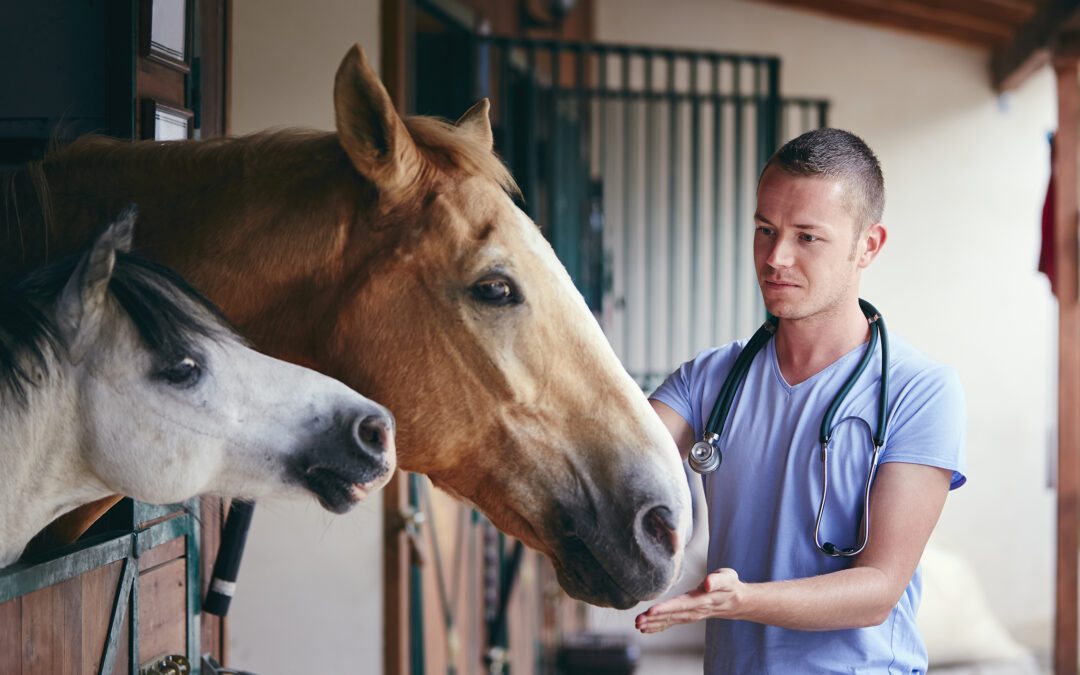Protect Your Equine Veterinarian License
Similar to doctors, equine veterinarians are licensed medical professionals who are required to provide a standard of care to each and every horse that is their patient. When a horse’s owner feels that their horse was further harmed or killed due to a veterinarian or vet clinic’s incompetence or carelessness, then the owner may file a malpractice claim. Malpractice allegations can not only defame your reputation and veterinary practice but also can result in a revoked license. If you have been accused of veterinary malpractice, you should seek legal counsel from a qualified equine veterinary defense attorney.
What Constitutes Veterinary Malpractice?
According to general veterinarian malpractice law, (review hyperlink for basic overview applicable to many States) in order for the horse’s owner to win a malpractice lawsuit against the vet and recover damages, the owner must be able to prove these four elements:
- The veterinarian had accepted the responsibility to treat the horse.
- The veterinarian failed to meet the standard of care when treating the horse. This could involve their actions or lack of actions.
- The horse was injured, became sicker, or was killed due to the veterinarian’s failure to meet the standard of care.
- The injury, sickness, or death of the horse resulted in damages to the horse’s owner.
At Clayborne & Wagner LLP Equine Law Services, we will thoroughly review your case and aggressively work to prove the above malpractice qualifications as false.
The Differences Between Veterinarian Malpractice and Negligence
It is important to note that not all veterinary judgment calls, possible mistakes, or even errors committed by veterinarians are considered medical malpractice. What’s the key difference between a malpractice lawsuit and a simple negligence lawsuit? In a simple negligence case, the standard is what a reasonable person would do in similar circumstances. In malpractice cases, the standard is what a trained, professional veterinarian would do.
To distinguish the difference between veterinary malpractice and simple negligence, please review the examples listed below:
Veterinarian actions that might account for a malpractice lawsuit:
- Committing an error during a horse’s surgical procedure
- Misdiagnosing a horse’s injury or illness or prescribing the wrong course of treatment
Veterinarian actions that most likely constitute simple negligence:
- Failure to properly secure a horse into its trailer
- Forgetting to leave enough food or water for a horse
The equine litigation team at our firm also represents veterinarians and vet clinics in simple negligence lawsuits. We will do everything in our power to protect your reputation as a trusted veterinary professional.
Working with an Equine Law Firm for Veterinary Malpractice Defense
With the intricacies of veterinary malpractice claims, it is recommended that you seek professional legal defense from an attorney. Corinne Mitchell, the head of our equine law division, will work with you to seek the best results for you and your veterinary team. She has extensive experience in trial practice and appeals, expert evaluations and assessments, fee disputes, and alternative dispute resolution. During this stressful time, she will do everything in her power to seek justice for your practice. To schedule a legal consultation, contact our firm today.
Learn more about our equine law services.

